It’s hard to think of a cocktail that’s not made complete with citrus fruit. Think about the twists of lemon, the squirts of lime or even a glass of orange juice and citrus is a quintessential piece of cocktail culture. The fresh tartness or sweetness from citrus fruits does wonders to bring a cocktail to life.
The acids in citrus fruits play beautifully against the alcohol and sugar in cocktails, as they cut each other’s unpalatable extremes. Plus, many gins and liqueurs end up using citrus fruits or, at least, express notes of the fruits.
If you’re new to cocktails and are unsure what citrus you should be using in cocktails, we’ve got you covered. After we go over the benefits of fresh juice vs. bottled juice, we’ve got a guide for all of the common citrus ingredients in cocktails and then some.
Fresh Juice vs. Bottled Juice
Let’s make this clear, fresh is almost always better than pre-packaged juice. That also goes for pre-packaged juice, the fresher, the better. Fresher juice offers a much better zip does a better job tying together cocktails. Like any produce, the global agricultural market makes citrus available pretty much any time of the year, but make no mistake, winter is when they’re generally tasting the best. A firm peel with a little give and feels heavy for how big it looks are the prime indicators the fruit is ideal. And when we say fresh, we mean fresh. Squeeze while making, lest you lose the aromatics through oxidation.
Bottled juice is more consistent than juice from several fruits, but that’s just a risk you should take with the freshness. If you are having a party where many cocktails will be consumed over a long period of time, bottled may be your best bet for the sake of ease. Just look for the freshest possible juice (as opposed to the frozen cylinder of concentrate that you mix with water).
Types of Citrus for Cocktails
Lime
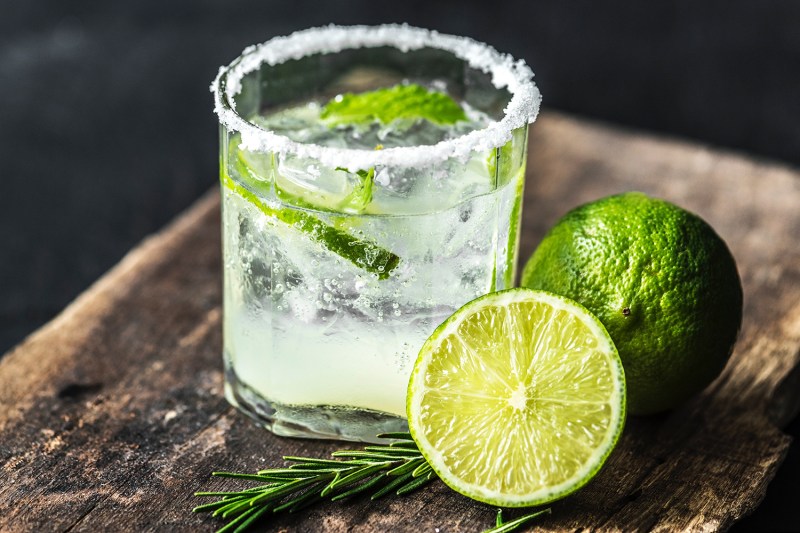
Lime should be a staple — well all of these should be — on a bar, in a kitchen, or anywhere a drink might be made. As a key ingredient in countless cocktails, limes certainly have an argument to be the most important citrus fruit in the cocktail biz, and probably the most refreshing. There are a number of different lime varieties around the world, which include: makrut, finger limes, and key limes.
Works well in: Few cocktails showcase lime like a mojito or daiquiri, but a slice of lime is a great complement to many drinks.
Lemon
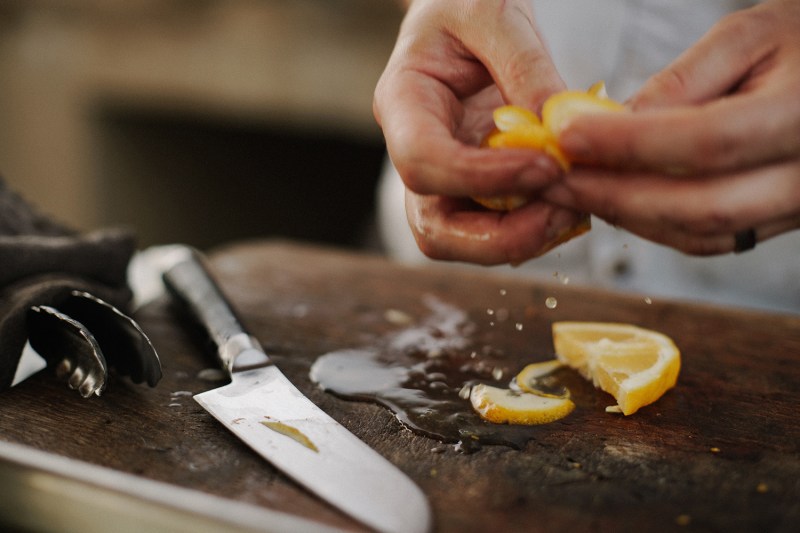
A twist of lemon rind finishes enough
Works well in: Lemon juice is best experienced in a whiskey sour or add a twist to a martini — and if you’re feeling really frisky a Lemon Drop.
Orange
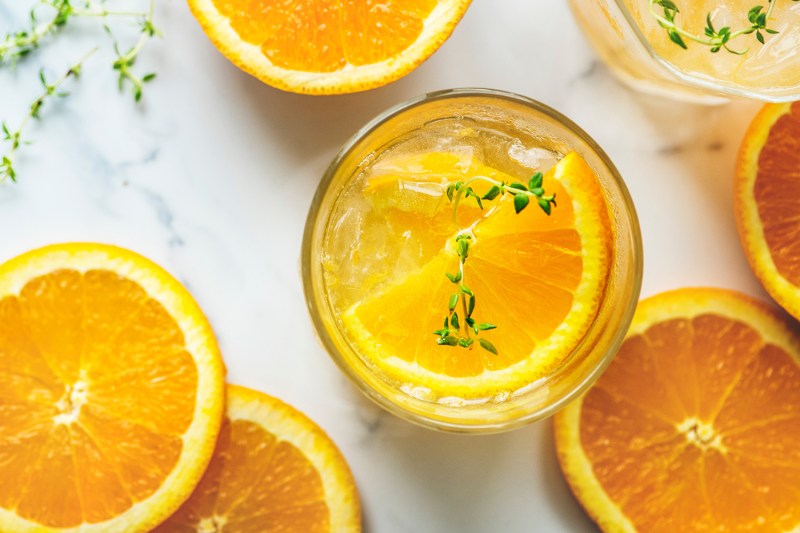
There are an incredible amount of cocktails using orange juice as a base, and it makes sense, as so many people use it as a base to start their day. From champagne and OJ in a mimosa to a Fuzzy Navel, orange juice finds its way into many
Works well in: You can go all out and mix vodka and orange juice for a screwdriver, or just garnish a fantastic Old Fashioned with an orange peel. It’s a very versatile fruit, plus they taste good on their own!
Grapefruit
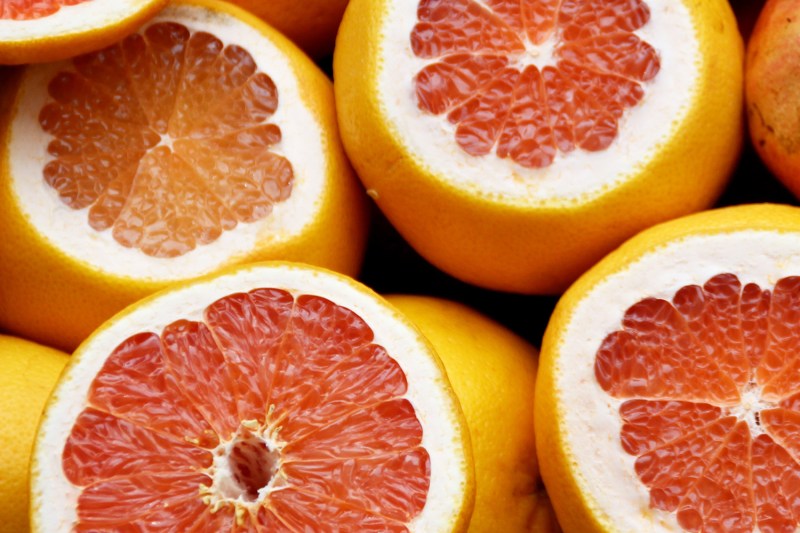
This big fruit is a familiar sight on breakfast tables and is a great juice to drink on its own, plus the fruit is simply delicious. Grapefruits do come in a lot of different varieties with varying flesh colors and flavors. Most often, grapefruit will be a gorgeous mix of sweet and tart, making it a perfect mixture for plenty of spirits. Grapefruit finds a fantastic match in gin, which oftentimes has botanicals reminiscent of grapefruit if grapefruit isn’t in it to begin with.
Works well in: Try grapefruit in a Paloma with tequila, a Salty Dog, or simply a slice of grapefruit in a vodka soda.
Mandarin Oranges, Clementines, and Tangerines
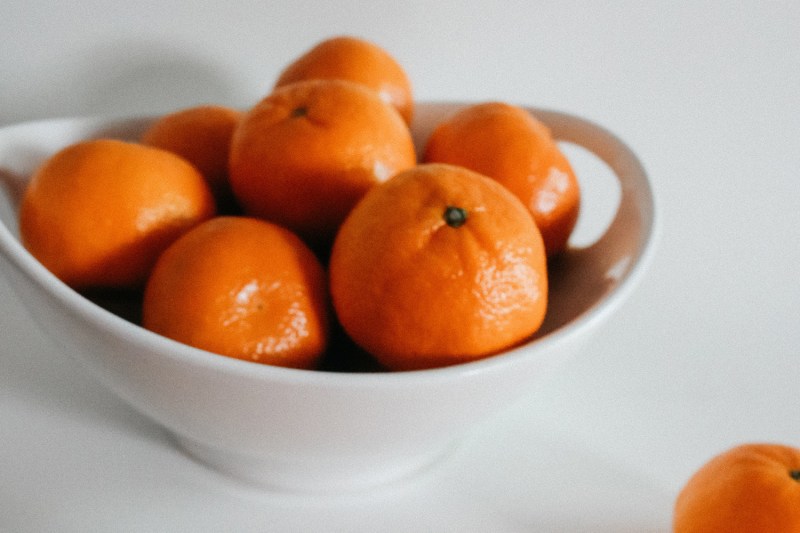
Mandarin oranges and Clementines are basically small oranges (more on that in a second), but with a little bit more burst of flavor, so long as they’re ripe. Common oranges are a hybrid of Mandarin oranges while clementines are a hybrid of a willowleaf mandarin and a sweet orange. Tangerines are larger than either, also a hybrid of Mandarins, and hail originally from Morocco. Like the other two, the taste is sweeter and more potent than oranges.
Works well in: If you’re going to use any of these fruits, it will work well in just about every instance where you might use an orange.
Yuzu
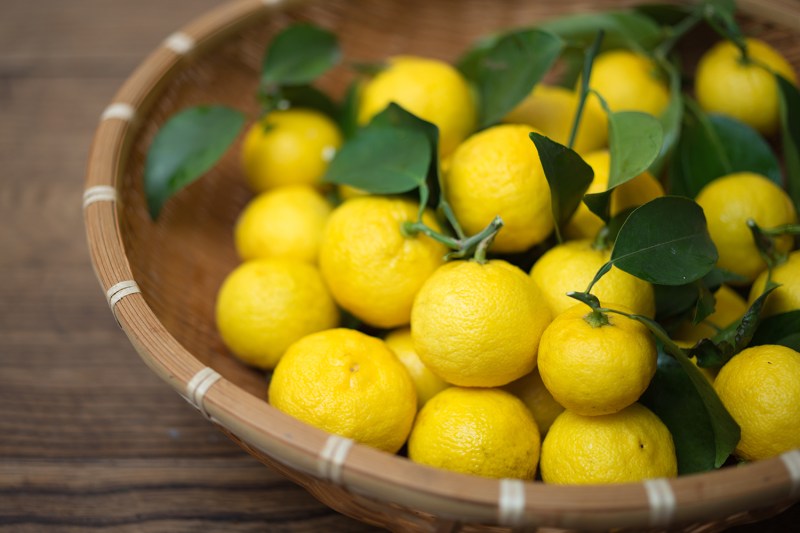
Looking a bit like an ugly lemon the size of an orange, yuzus aren’t great for eating on their own, just like limes and lemons, but the fragrant fruit is an amazing addition to
Works well in: Yuzu has been a cocktail darling for a few years now and works well in place of lemon or lime in a variety of cocktails.
Bergamot Orange
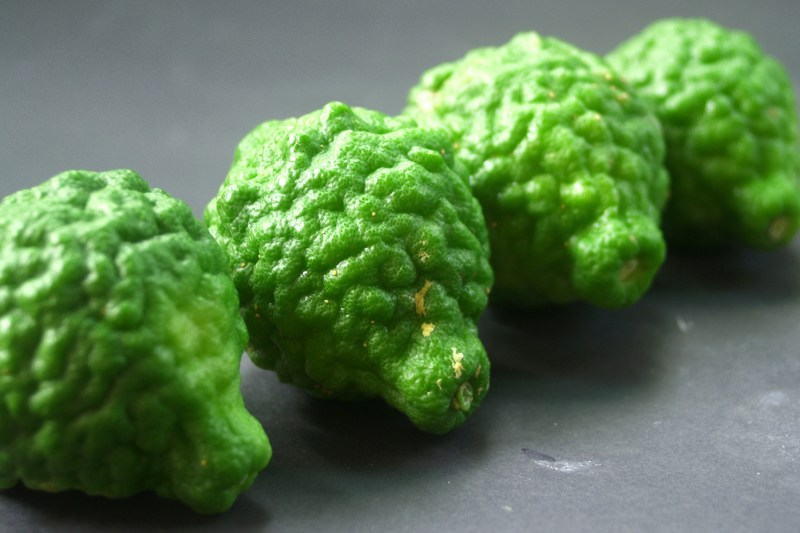
The fruit is a bit befuddling since Bergamot is a type of orange, but it’s green like a lime. It’s a common piece in Grey teas (of the Lady and Earl varieties) and is so pungent it also makes its way into perfumes and colognes.
Works well in: With its importance in the tea world, these oranges work well in gin-based


